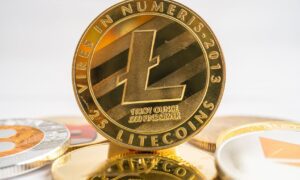Welcome to the world of finance, where markets thrive and fortunes are made! Today, we embark on an exhilarating journey as we delve into the intricate world of securities trading. Buckle up, because in this blog post, we will be taking a close look at two prominent players in the global market: Dubai Financial Market and Nasdaq. Get ready to immerse yourself in a thrilling comparison of these behemoths, exploring their unique characteristics and uncovering the fascinating types of securities that grace their trading platforms.
Introduction to the Dubai Financial Market and Nasdaq
The world of finance is vast and diverse, with different markets operating in various parts of the globe. Two major players in this field are the Dubai Financial Market (DFM) and Nasdaq. Both of these exchanges play a crucial role in the global economy by facilitating the buying and selling of financial instruments such as stocks, bonds, and derivatives.
Dubai Financial Market
The Dubai Financial Market was established in March 2000 as a joint stock company under the supervision of the Securities and Commodities Authority (SCA). It is one of the leading stock exchanges in the Middle East region, providing investors with a platform to trade securities issued by companies within or outside the UAE.
The DFM operates as a secondary market, meaning that it enables investors to buy or sell already-issued securities from other investors. The exchange has more than 230 listed companies from various sectors such as real estate, banking, insurance, telecommunications, and consumer goods.
Nasdaq
In contrast to DFM’s regional focus, Nasdaq is a global electronic marketplace for buying and selling securities. It was founded in 1971 as an index for tracking technology stocks but has since evolved into one of the largest stock exchanges globally. With over 3,300 listed companies from more than 60 countries, Nasdaq ranks second only to the New York Stock Exchange (NYSE) in terms of market capitalization.
Understanding Securities: What Are They?
Securities are essentially financial instruments that represent a form of ownership or debt in a company or government entity. They are one of the primary ways in which individuals and institutions invest their money for potential growth and returns.
There are various types of securities traded on financial markets, including stocks, bonds, mutual funds, and exchange-traded funds (ETFs). Each type has its own unique characteristics and risk profile.
Stocks, also known as equities, represent ownership in a company. When an individual buys stock in a company, they become a shareholder and have a claim on the company’s assets and earnings. The value of stocks can fluctuate based on market conditions and the performance of the underlying company.
Bonds, on the other hand, represent loans made to governments or corporations. When an investor buys a bond, they are essentially lending money to the issuer for a set period of time at a fixed interest rate. Bonds tend to be less risky than stocks but also offer lower potential returns.
Mutual funds are investment vehicles that pool money from multiple investors to purchase different securities, such as stocks, bonds, or both. These funds offer diversification by investing in a variety of assets rather than just one individual security.
Types of Securities Traded in the Dubai Financial Market
The Dubai Financial Market (DFM) is the primary stock exchange in the United Arab Emirates, serving as a hub for local and international investors. It offers a wide range of investment opportunities through various types of securities traded on its platform. In this section, we will take a closer look at the different types of securities that can be bought and sold on the DFM.
1. Equities:
Equities, also known as stocks or shares, represent ownership in a company. On the DFM, investors can trade the equities of both local and international companies listed on the exchange. These stocks are classified into different sectors, including banking, real estate, telecommunications, and energy, among others.
2. Bonds:
Bonds are fixed-income securities issued by governments or corporations to raise capital. The DFM offers bonds from various issuers, such as government entities like Dubai Municipality and private companies like Emaar Properties. These bonds offer a steady stream of income through regular interest payments until maturity, when they are redeemed at face value.
3. Exchange-Traded Funds (ETFs):
ETFs are investment funds that track an underlying index or basket of assets such as stocks, commodities, or currencies. They provide diversification benefits and allow investors to access different markets with lower costs compared to buying individual stocks or other assets directly.
4. Real Estate Investment Trusts (REITs):
REITs are investment vehicles that pool capital from multiple investors to invest in income-generating real estate properties such as commercial buildings and residential complexes. The DFM offers a variety of REITs that provide regular dividends to investors.
5. Sukuk:
Sukuk are Islamic bonds that comply with Shariah principles, making them an attractive investment option for Muslim investors. They operate similarly to traditional bonds, with the key difference being that interest payments are replaced with profit distributions from underlying assets.
6. Funds:
The DFM also offers various types of funds, including mutual funds and hedge funds, which allow investors to access a diversified portfolio of securities managed by professional fund managers. These funds offer different risk profiles and investment strategies to cater to the needs of different investors.
7. Derivatives:
Derivatives are financial instruments whose value is derived from an underlying asset, such as stocks, currencies, or commodities. The DFM offers various types of derivatives, such as futures and options contracts, for investors seeking to hedge against market risks or speculate on future price movements.
Types of securities traded on Nasdaq
Nasdaq, short for National Association of Securities Dealers Automated Quotations, is one of the largest stock exchanges in the world. It was founded in 1971 and is based in New York City. Nasdaq is known for its high-tech and growth-oriented companies, making it a popular choice for investors looking to buy into innovative and emerging industries.
There are several types of securities traded on Nasdaq, each with its own unique characteristics and risks. Let’s take a closer look at some of the most common types of securities traded on this exchange:
1. Common Stocks:
Common stocks are the most well-known type of security traded on Nasdaq. They represent ownership in a company and give shareholders the right to vote on important matters such as corporate policies and electing board members. Common stocks also offer potential for capital appreciation through an increase in stock price or dividends paid by the company.
2. Exchange-Traded Funds (ETFs):
ETFs are investment funds that hold a basket of assets such as stocks, bonds, or commodities. They trade like stocks on an exchange, making them easily accessible to investors. ETFs provide diversification within a particular market or sector, allowing investors to spread their risk across multiple assets.
3. American Depositary Receipts (ADRs):
ADRs are certificates issued by U.S. banks that represent shares in non-U.S. companies listed on foreign exchanges. These ADRs make it easier for U.S. investors to invest in international companies without having to deal with foreign currency exchange rates or other regulatory barriers.
4. Real Estate Investment Trusts (REITs):
REITs are companies that own and operate income-generating real estate properties, such as office buildings, shopping malls, and hotels. They offer investors a way to invest in real estate without having to manage physical properties. REITs also have certain tax advantages, such as not being subject to corporate income tax if they distribute at least 90% of their taxable income to shareholders in the form of dividends.
5. Preferred Stocks:
Preferred stocks are a type of equity security that has characteristics of both stocks and bonds. Like common stocks, they represent ownership in a company, but unlike common stocks, preferred stocks typically pay fixed dividends and have priority over common stockholders when it comes to receiving dividend payments or assets in the event of bankruptcy.
6. Derivatives:
Nasdaq also offers the trading of derivative securities such as options and futures contracts. These securities derive their value from an underlying asset, such as a stock or index. Options give the holder the right to buy (call option) or sell (put option) an underlying asset at a predetermined price within a specific time period. Futures contracts obligate the buyer to purchase an underlying asset.
Conclusion
Dubai Financial Market and Nasdaq are two prominent players in the world of securities trading. While both markets offer a multitude of investment opportunities, they have distinct differences in terms of the types of securities traded. The Dubai financial market primarily focuses on equities, bonds, and Islamic funds, whereas Nasdaq offers a wider range, including stocks, options, derivatives, and exchange-traded funds.



































